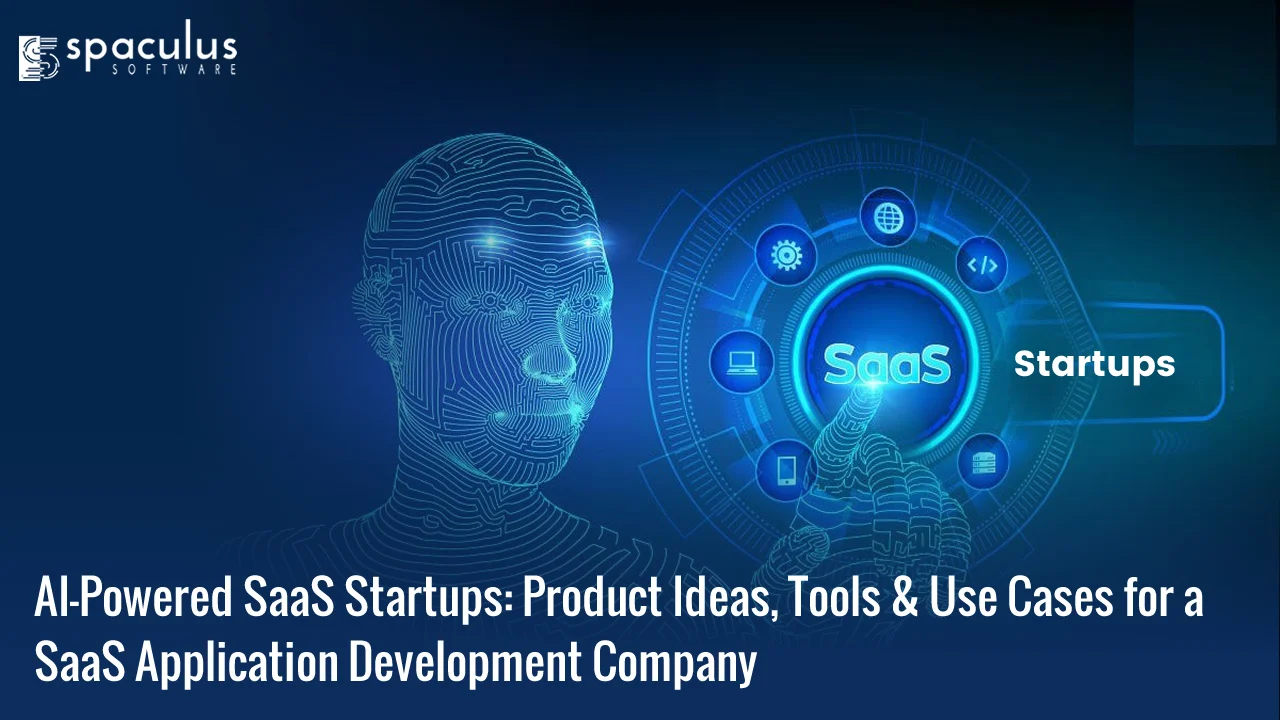
The software world is evolving faster than ever—and at the center of it is a new class of products: AI-powered SaaS startups.
They don’t just store data. They think. They automate. They learn. They solve problems before users even ask.
For a SaaS application development company, this shift opens the door to a new kind of value creation—where code alone isn’t enough. You need to build intelligence into the product.
This article breaks down fresh product ideas, powerful tools, and real-world use cases—all written for teams who are building the next generation of intelligent SaaS.
Combining AI with SaaS isn’t just a trend. It’s a strategic evolution.
SaaS platforms already solve narrow problems—like billing, project management, or analytics. But with AI embedded at the core, these platforms become assistants, advisors, and decision-makers.
For example:
That’s not just software. That’s leverage.
Here’s what’s driving the explosion of AI-powered SaaS:
If you’re a SaaS application development company, your future clients won’t just ask for “apps” — they’ll ask for smart platforms.
Let’s explore practical and unique SaaS product ideas that can be powered by AI—ideal for founders and agencies targeting B2B or vertical markets.
Problem: Startups waste time screening hundreds of resumes.
Solution: Build a tool that reads resumes, scores them based on job fit, and auto-generates interview questions.
Key AI Features:
Ideal for: SaaS firms targeting HR tech.
Problem: SMEs struggle with regulations—privacy, tax, security.
Solution: An AI platform that reads contracts, audits spreadsheets, and flags issues based on industry rules.
Key AI Features:
Ideal for: LegalTech or FinTech SaaS verticals.
Problem: Many teams still rely on manual workflows—like assigning leads or sending emails.
Solution: A drag-and-drop builder where users train AI agents to automate actions across tools.
Key AI Features:
Ideal for: Marketing and operations platforms.
Problem: Tech teams often delay documentation.
Solution: An AI tool that reads code or UI screens and generates user guides, API docs, and tutorials automatically.
Key AI Features:
Ideal for: DevTools or internal SaaS platforms.
Problem: Generic training doesn’t work for complex teams.
Solution: A SaaS platform that creates personalized learning paths using role data, performance, and behavior.
Key AI Features:
Ideal for: EdTech or corporate L&D startups.
To build AI-powered SaaS, you need the right stack. Below are some real-world tools and frameworks development companies can use:
These are the LLMs that bring language intelligence. Whether you’re generating text, summarizing data, or building chat agents—this is where it starts.
Use for:
AI needs memory. Vector databases like Pinecone store user history, past interactions, and data embeddings to make responses smarter.
Use for:
These frameworks help you build “AI agents” that do more than respond—they take actions, chain tasks, and remember steps.
Use for:
Real-time databases and auth systems that play well with AI. Great for startups who need to launch fast but scale reliably.
Use for:
You still need a clean frontend. AI doesn’t excuse bad UX. These frameworks help build lightning-fast, responsive UIs for web or mobile.
These are not just ideas—they’re already being implemented by smart companies.
Use AI to read lead data and generate a personalized cold email, complete with subject line, intro hook, and CTA.
Used by: Outreach, Smartwriter
Benefit: Saves sales teams hours of writing and improves open rates.
Developers upload code or record UI flows. AI turns them into step-by-step onboarding docs.
Used by: Clueso, Mintlify
Benefit: Frees up engineering time and helps new hires ramp faster.
Users upload PDFs, CSVs, or scanned bills. AI extracts data, matches it to ledgers, and flags mismatches.
Used by: AI-based accounting platforms
Benefit: Eliminates manual errors and speeds up month-end reporting.
Marketing teams upload goals or keywords. AI suggests blog topics, social posts, email headlines—complete with dates and tones.
Used by: Jasper, Copy.ai
Benefit: Keeps marketing teams ahead of schedule.
Here’s why SaaS development companies should invest in building these products:
AI-powered SaaS is not a side offering—it can become your core specialization.
If you’re building for other companies, here’s how to pitch AI into their next project:
That’s a stronger pitch than “We’ll build your backend.”
While AI creates massive opportunity, it also comes with responsibility.
Here’s what SaaS app companies must handle:
Solve these early and you’ll stand out as a company that builds AI the right way.
Spaculus Software empowers startups and enterprises to build AI-powered SaaS applications from the ground up.
We go beyond basic development—offering:

Whether you’re launching a new SaaS product or modernizing an existing one, we help you bring smart software to market—faster, cleaner, and built to grow.
AI-powered SaaS isn’t the future. It’s the present—and the window is open right now.
If you’re a SaaS Application Development Company, this is your moment to lead:
Whether you’re helping founders validate an idea, or building internal tools for growing companies, AI is your best asset—if you build it well.
And those who do? They’ll not only build great products, but also long-term businesses.
SAAS Application Development